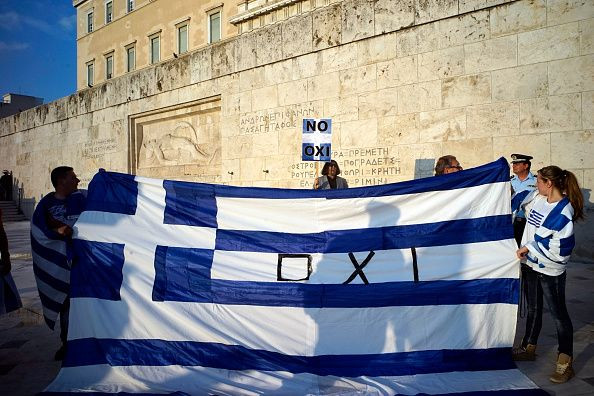Greek Default: IMF Confirms Greece Missed Debt Payment

The International Monetary Fund confirmed Tuesday that Greece missed its scheduled $1.5 billion debt repayment, becoming the first advanced economy to default in the IMF's seven-decade history.
In a statement, the IMF also confirmed that it had received a further bailout request from the Greeks, "which will go to the Executive Board in due course."
Greek politicians had scrambled to request another bailout to help pay for more than $30 billion in future loan payments and avoid the steep austerity measures demanded by European creditors. Greece has been locked in a monthslong battle with its creditors represented by the so-called troika: the European Commission, the European Central Bank and the IMF.
Greece's fall into arrears with the IMF raises further fears that the country will leave the eurozone, the group of nations bound by a common currency. That event, known colloquially as the Grexit, could spark economic turmoil and sink the country into an immediate financial catastrophe. This week Greek authorities imposed capital controls to prevent a national bank run.
The IMF does not allow late payments, and though it has bent certain rules for Greece in the past, international members have pushed the organization to take a firm hand with Greek debt repayments.
The consequences of falling into default could be severe. Greece potentially loses access to the IMF's funding facilities and eventually may have its membership revoked.
Greek diplomats are expected to continue their negotiations with European finance chiefs this week. But in a complication of those talks, the nation's leftist Prime Minister Alexis Tsipras scheduled a popular referendum over proposed bailout measures. European leaders fear that a popular rejection of the austerity program demanded by Germany and its counterparts could signal a break with the eurozone.
© Copyright IBTimes 2025. All rights reserved.






















